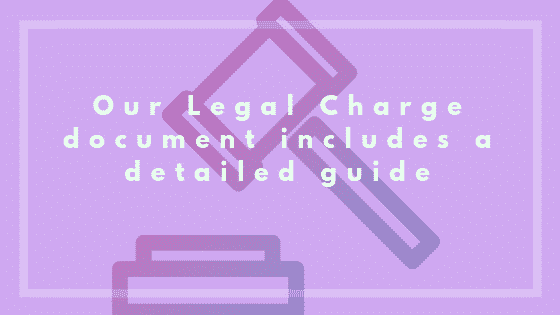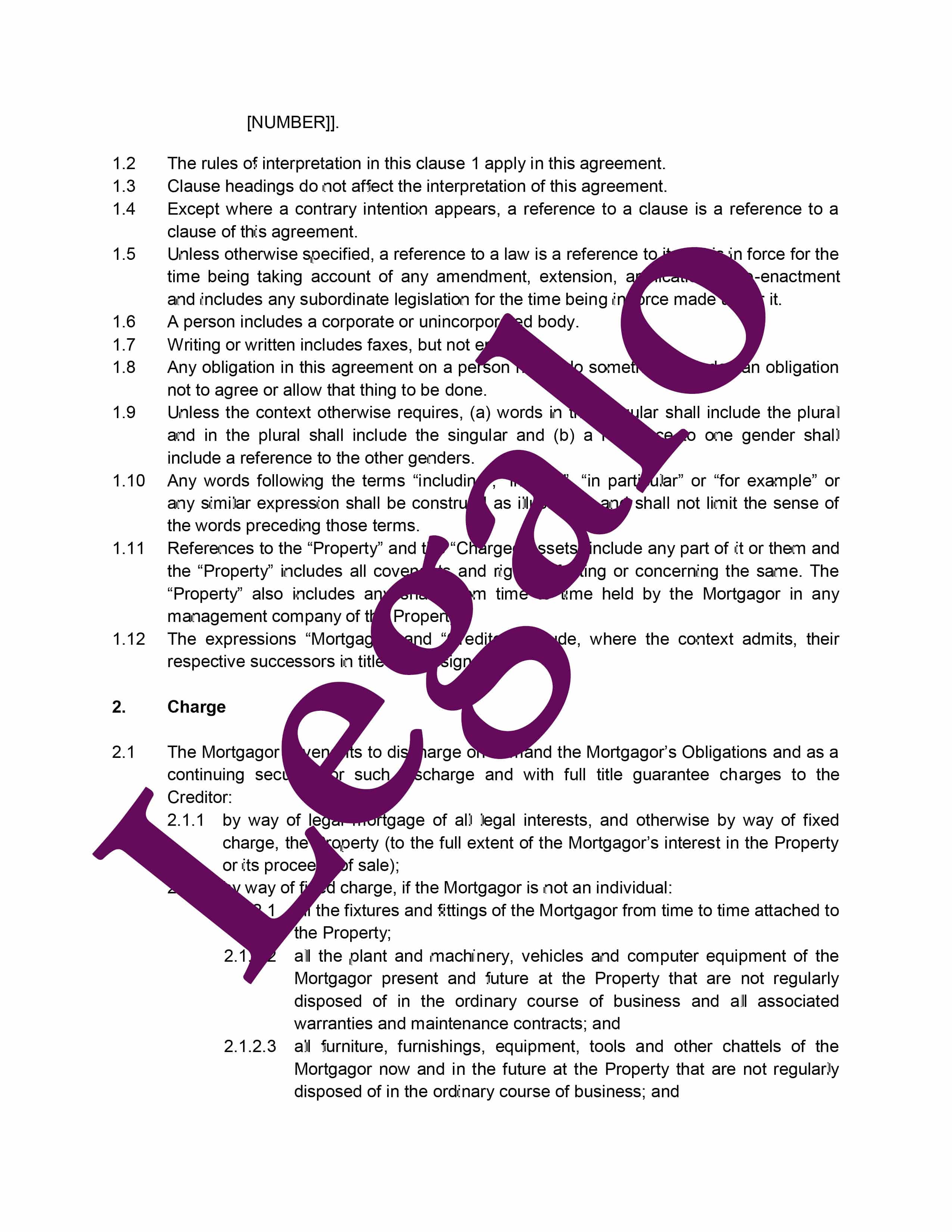So, what should we be doing? Your due diligence in advance of instructing your solicitors Insist that your client (and any co-owner ) obtains independent legal advice Obtain the consent of any prior lender where there is a restriction registered in their favour Obtain the consent of any prior lender. If you can pay back the debt in full at this stage, you can get the charge removed from the Land Registry.
Hi, If the charge is in relation to an outstanding debt, you will be able to register the charge by making an application to the land registry. You will need to make an application on form cn1.
Go talk to a lawyer! You cannot apply a charge on a property without his knowledge. However if you lived with him as man and wife and shared the bills as well as renovation costs.

In the UK a charge is a registered document placed by a creditor on a debtors property. To obtain a charge the creditor HAS to apply to the court, the court will call the owner and request his side of the story He will then determine if the. What does putting a charge on a property mean? What is a legal charge over residential property?

How do you register a legal charge? Hi - My ex still owes me 10k from our divorce. A charging order secures a debt you have with a creditor against your property.
This means if you sell or remortgage your home before the debt is cleared the charging order will be paid off from the proceeds. A creditor can only get a charging order if they already have a County Court judgment (CCJ) against you.
This guide gives advice on the registration of legal charges and deeds of variation of the terms of a registered charge at HM Land Registry. It is aimed at conveyancers. Making someone bankrupt and putting a charge on a property and two different things entirely.
A creditor could also put a charge on the property and then petition for their bankruptcy. A has priority over charge B, as first in time. It can be used only to create remortgages of a borrower’s existing property. Contact your solicitor, as well as registering the charge you will need to agree terms for release etc.
Also, if there is a mortgage secured on the property you will need to gain the authority of. Hi Paul it depends what the charge is for: Restrictions What is a Restriction? A restriction is an entry made in the Proprietorship register of the title to freehold property, which restricts what dispositions (sales, mortgages, gifts etc) can be registered against the title. Use this form if you want to create a legal charge (mortgage) where the lender does not have their own standard form of charge.
Send the completed form with the correct fee to our. Moving on, can this second charge be variable, based on criteria fixed when the charge was placed on the property ? An example could be a variable interest rate on the debt and thus the charge. Alternatively, can you put a charge for £000on a £100property to cover any eventuality ? All with owners consent of course. Property – Fill in the address of the property being charged by this legal charge.
This should match its description in the registered title. If it is registered at the Land Registry, then fill in its title number.
Im sure a lender with a 1st charge cannot prevent anyone else putting on a charge on the smae property. You would simply be the 2nd charge and rank lower than the 1st.

There are two basic reasons for an equitable charge to be created. It wont affect the mortgage.
Either an attempt was made to create a legal charge but the formalities were not dealt with correctly or a court order has been obtained to charge the property with a previously unsecured debt. Holding an equitable charge does not give the owner a power of.
If your property is not registered with the Land Registry, you can protect your position by applying for a ‘class F land charge ’ at the Land Registry, which costs £on GOV. If the property is not the family home, you might be able to register a ‘restriction’ at the Land Registry. Click on "Find a property " at the top of the page and order a set of register entries for your property. You should be able to get these immediately.
Look in the Charges Register of the title entries (C register). Any mortgages and charges will appear here.
No comments:
Post a Comment
Note: Only a member of this blog may post a comment.